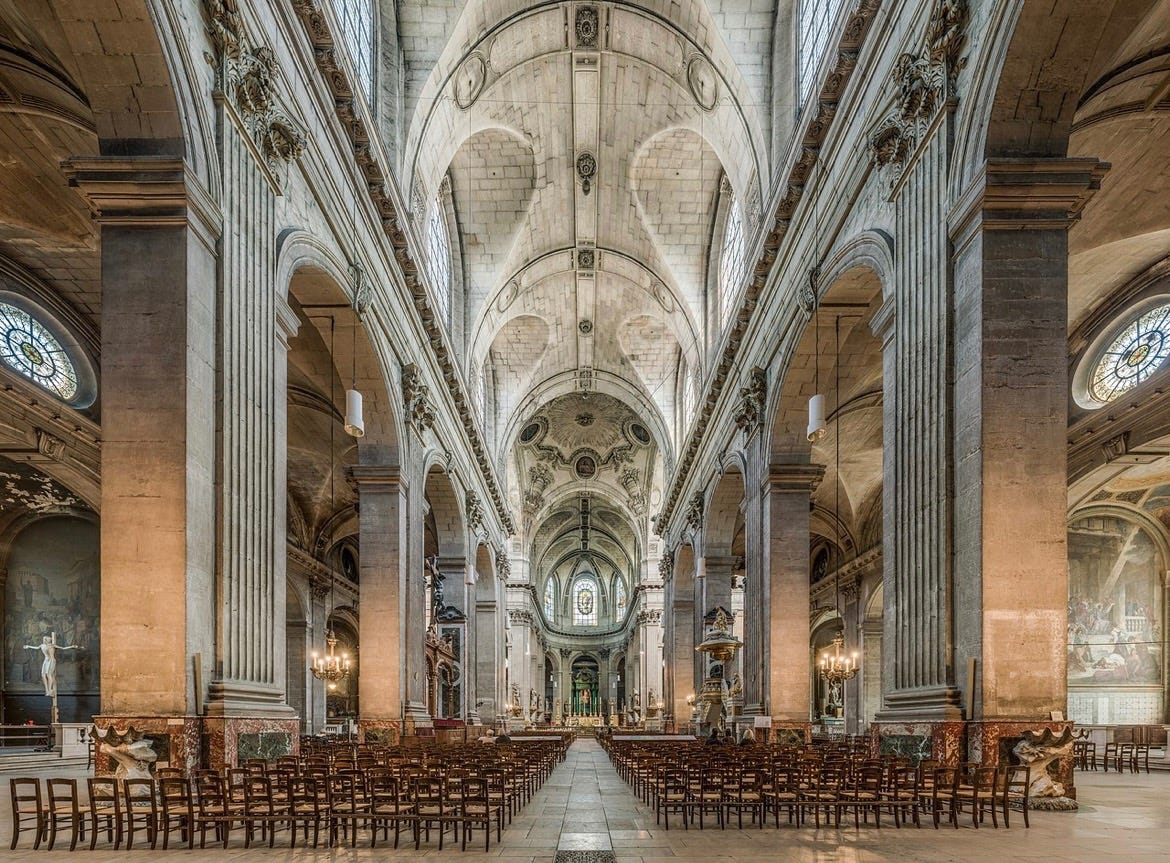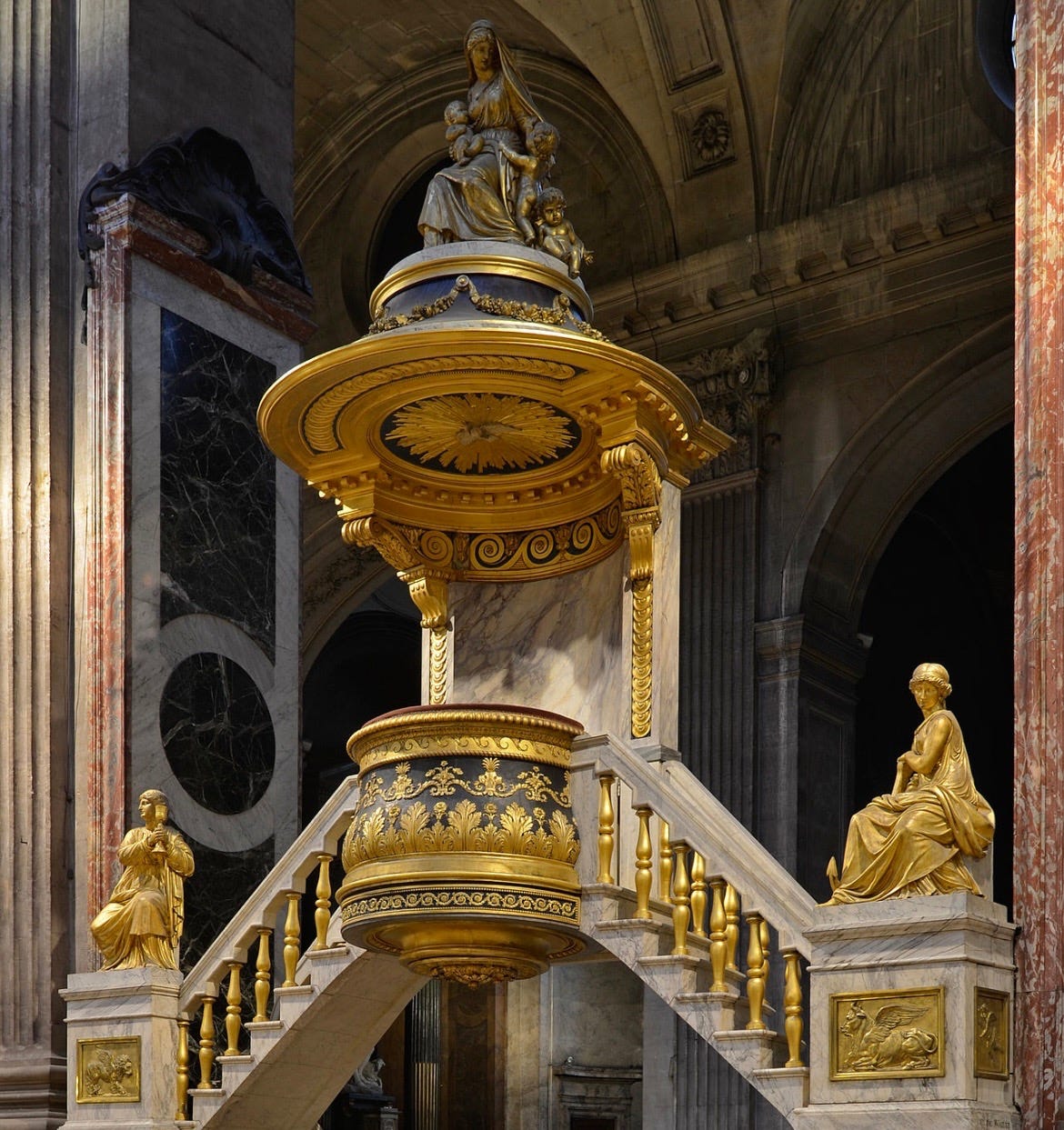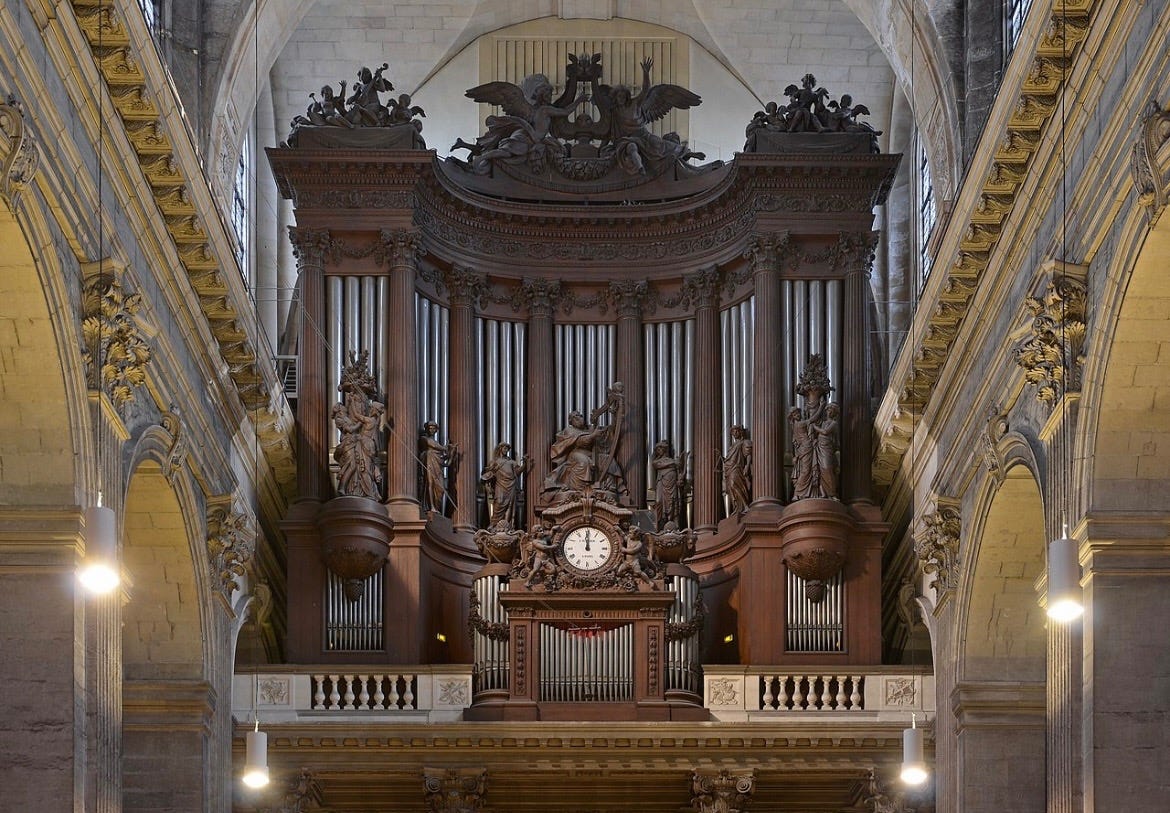Alexandre Dumas' The Three Musketeers: Chapter 7
100 Days of Alexandre Dumas' The Three Musketeers June 1 - August 31, 2024
100 Days of Alexandre Dumas' The Three Musketeers
June 1 - August 31, 2024
All for One and One for All: "The Three Musketeers" at 180
June 17
Chapter 7
Please forgive this unimaginative post - but it is crucial for us to memorize the names of our heroes AND their servants - AND distinguish their characteristics - thus the repost of long quotes from this short chapter - as always, repetition is the mother of success!!! Do you know how important all this is?! I am visiting my mom and chatting about The Three Musketeers with her - today she told me she couldn’t sleep all night - could not remember the name of the servant of Aramis!!! Needless to say - she is a huge fan of the novel AND Alexandre Dumas!!!
Athos - aristocratically mysterious - Grimaud
Porthos - expansively gregarious - Mousqueton
Aramis - seductively pious - Bazin
D'Artagnan - recklessly courageous - Planchet
How to spend d'Artagnan’s money according to the three friends:
Athos advised him to order a good meal at the Pomme de Pin!!! (Tavern "Pine Cone” near the pont Notre-Dame on the ile de la Cité)!!!
Porthos to hire a lackey!!!
Aramis to take a suitable mistress!!!
Porthos found a young man spitting into the water from Pont de la Tournelle - and hired him on the spot!!!
“Porthos had held that this occupation was proof of a reflective and contemplative organization, and had brought him along without further recommendation. The grand bearing of this gentleman, in whose service he believed himself engaged, had seduced Planchet—for that was the Picard's name. He was slightly disappointed when he saw that the place had already been taken by a colleague named Mousqueton, and when Porthos pointed out to him that his household, though large, could not include two servants, and that he was to enter d'Artagnan's service. However, when he assisted at the dinner given by his master, and saw the latter take a fistful of gold from his pocket in order to pay, he thought his fortune was made and thanked heaven that he had fallen into the possession of such a Croesus. He persevered in this opinion until after the feast, from the leftovers of which he rewarded himself for much abstinence. But when he went to make up his master's bed in the evening, Planchet's pipe dreams vanished. The bed was the only one in the apartment, which consisted of an antechamber and a bedroom. Planchet slept in the antechamber on a blanket taken from d'Artagnan's bed, which d'Ar-tagnan henceforth did without.”
This scene is excellently portrayed in the Richard Lester film!!!
Athos is very different from the larger than life Porthos:
“Athos, for his part, had a valet whom he had trained for his service in a rather special manner, and who was named Grimaud. He was extremely taciturn, this worthy lord. We are speaking of Athos, of course. For five or six years he had lived in the most profound intimacy with his companions Porthos and Aramis, the latter recalled having seen him smile often, but they had never heard him laugh. His utterances were brief and expressive, always saying what they meant to say and nothing more: no embellishments, no embroideries, no arabesques.
His conversation was a fact without accessories.
Though Athos was barely thirty years old and was extremely handsome of body and mind, no one knew him to have a mistress. He never spoke of women. But he did not prevent people from speaking of them in front of him, though it was easy to see that this sort of conversation, which he mixed into only with bitter comments and misanthropic observations, was perfectly disagreeable to him. His reserve, his unsociability, and his silence made him almost an old man. Thus, in order not to depart from his habits, he had accustomed Grimaud to obeying him at a simple gesture or a simple movement of the lips. He never spoke to him except in ultimate circumstances.”
More on Porthos:
“Porthos, as we have seen, had a character totally opposite to that of Athos: he not only talked a great deal, he also talked loudly; moreover, it mattered little to him—we must do him justice-whether anyone listened or not; he talked for the pleasure of talking and for the pleasure of hearing himself; he talked about everything except the sciences, pleading on that side the inveterate hatred which he had borne for scholars since childhood. He had less of a grand air than Athos, and his feeling of inferiority in that regard, at the beginning of their re-lations, had often made him unfair towards that gentleman, whom he attempted to surpass by his splendid outfits. But, with his simple musketeer's tabard, and merely by the way he threw back his head and advanced his foot, Athos instantly took the place that was his due and relegated the showy Porthos to second rank. Porthos consoled himself for that by filling M. de Tréville's antechamber and the guards corps at the Louvre with the noise of his successes, which Athos never spoke of, and for the moment, after passing from the nobility of the robe to the nobility of the sword, from the "judgess" to the baroness, it was a question for Porthos of nothing less than a foreign princess who wished him enormously well.”
And now - Mousqueton, the servant of Porthos!!!
"An old proverb says: "Like master, like man." Let us go on, then, from Athos's man to Porthos's man, from Grimaud to Mousqueton.
Mousqueton was a Norman whose master had changed his name from the pacific name of Boniface to the infinitely more sonorous and bellicose Mousqueton. He had entered Porthos's service on condition that he would be housed and clothed only, but in magnificent fashion; he required just two hours a day to devote himself to an industry that was sufficient to provide for his other needs. Porthos had accepted the deal; the thing suited him perfectly. He had doublets made for Mousqueton out of his old clothes and spare cloaks, and, thanks to a highly intelligent tailor, who made these rags like new by turning them inside out, and whose wife was suspected of wishing to bring Porthos down from his aristocratic habits, Mousqueton cut a very fine figure behind his master.”
Plus - Aramis and Bazin!!!
“As for Aramis, whose character we believe we have sufficiently introduced, a character moreover which, like that of his companions, we will be able to follow in its development, his lackey was named Bazin. Thanks to his master's hope of one day entering into orders, he always went dressed in black, as a churchman's servant should do. He came from Berry, was thirty-five or forty years old, gentle, peaceable, plump, occupied with reading pious works in the moments of leisure his master left him, and in a pinch could prepare a dinner for two, of few dishes, but excellent. Deaf, dumb, and blind to boot, and of the staunchest loyalty.”
And now - the surroundings!!!
“Athos lived on the rue Férou, two steps from the Luxembourg. His apartment consisted of two small rooms, very decently furnished, in a rooming house whose still young and truly still beautiful hostess uselessly made soft eyes at him.”
The three relics - presumably from former life: “sword, for example, richly damascened, of the sort fashionable in the period of François I,” “a portrait of a lord from the time of Henri Ill, dressed with the greatest elegance and wearing the Order of the Holy Spirit,” and “a casket of magnificent goldsmith's work, with the same coat of arms as the sword and the portrait, made a chim-neypiece that clashed frightfully with the rest of the trimmings.
Athos always carried the key to this casket with him. But one day he had opened it in front of Porthos, and Porthos had been able to assure himself that it contained only letters and papers.”
So mysterious!!!
Porthos:
“Porthos lived in an apartment of vast size and sumptuous appearance on the rue du Vieux-Colombier.”
Aramis - please note he lives on the ground floor - very important for future developments!!!
“As for Aramis, he lived in small quarters consisting of a boudoir, a dining room, and a bedroom, which bedroom, located on the ground floor like the rest of the apartment, gave onto a small garden, cool, green, shady, and impenetrable to neighboring eyes.”
D'Artagnan may be young - but he is incredibly clever and smart - he has an uncanny ability to read people and situations:
“D'Artagnan, who was of a very curious nature, as people with a genius for intrigue generally are, made every effort to find out who Athos, Porthos, and Aramis really were; for, under these noms de guerre, each of the young men concealed his name as a gentleman, Athos above all, who smelled of a great lord a league away. He thus turned to Porthos for information about Athos and Aramis, and to Aramis for the truth about Porthos.”
More on Porthos:
“Vain and indiscreet, he could be seen through like a crystal. The only thing that could have thrown off the investigator would have been to believe all the good he said of himself.”
More on Aramis:
"My dear, don't forget that I wish to be in the Church, and I flee all worldly circumstances. That handkerchief you saw was never entrusted to me, it had been forgotten at my place by one of my friends. I had to take it so as not to compromise them, he and the lady he loves. As for me, I do not have and do not wish to have a mistress, following in this the highly judicious example of Athos, who has one no more than I do."
"But, devil take it, you're not an abbé, you're a musketeer!"
"An interim musketeer, my dear, as the cardinal says, a musketeer against my will, but a man of the Church at heart, believe me.”
Aramis, despite his protestations, wants to establish a reputation as ladies’ man - why?!?!?! He is so busy - “then some verses to compose at Mme d'Aiguillon's request; then I have to go to the rue Saint-Honoré to buy rouge for Mme de Chevreuse. So you see, my dear friend, if you are not in a hurry, I certainly am."
D'Artagnan finally comes to the conclusion that Athos is Achilles, Porthos is Ajax, and Aramis is Joseph - two heroes of the Trojan War and the Biblical son of Jacob and Rachel!!!
Aramis seems to have too many mysterious excuses…
“As for Aramis, he never gambled. He was quite the worst musketeer and the most miserable guest you could ever see. He always had to work. Sometimes, in the middle of a dinner, when everyone, carried away by the wine and the heat of con-versation, thought they would remain at the table for a good two or three hours more, Aramis would look at his watch, get up with a gracious smile, and take leave of the company—to go, he said, and consult a casuist with whom he had a rendezvous. Other times he would return to his lodgings to write a thesis, and begged his friends not to distract him.”
The harsh realities of the class structure of the 16th century… after getting this advice on Planchet’s wining after the money was spent:
“Athos then advised d'Artagnan to dismiss the rascal, Porthos wanted him cudgeled first, and Aramis maintained that a master should only heed the compliments he was paid,”
D'Artagnan chose to thrash his servant, since he lacked the “substance and resources” of his musketeer friends:
“D'Artagnan reflected and decided to thrash him for a start, which was done with the conscientiousness that d'Artagnan put into everything; then, after thrashing him well, he forbade him to leave his service without his permission. "For," he added, "the future cannot fail me; I inevitably await better times. So your fortune is made if you stay with me, and I am too kind a master to make you miss your fortune by granting you the leave you are asking me for."
Planchet was also struck with admiration and said nothing more about quitting.”
With the respect of M. de Tréville, who recommended him to the king at all times, D'Artagnan joined the cadets of M. le chevalier des Essarts, thus becoming a guardsman - with the hope of being promoted to a musketeer in a couple of years!!!
“Then it was the turn of Athos, Porthos, and Aramis to mount guard with d'Artagnan when he was on duty. The com pany of M. le chevalier des Essarts thus acquired four men instead of one on the day it acquired d'Artagnan.”
One could “always come upon the inseparables if one searched between the Luxembourg and the place Saint-Sulpice, or between the rue du Vieux-Colombier and the Luxembourg.”
This Paris still exists!!! I’ve written extensively about the Luxembourg - rue du Vieux-Colombier leads to the Church of Saint-Sulpice - which is located between the oldest church in Paris, Saint Germain des Prés (founded in the 6th century - with the current structure from the age on The Three Musketeers, 1641!!!) and Luxembourg!!!
The Church of Saint-Sulpice, the third largest church in Paris after Notre-Dame and Saint-Eustache, is the parish church of the neighborhood where our friends live!!! Founded in the 13th century, it was reconstructed in 1646 - the age of musketeers!!!
If this name sounds familiar to those of you who read Les Miserables with me - yes, this is the church where Colonel Pontmercy would come in order to catch a glimpse of his son, Marius!!!
Exterior photo taken by me last winter - the interior photos are from the church website.








